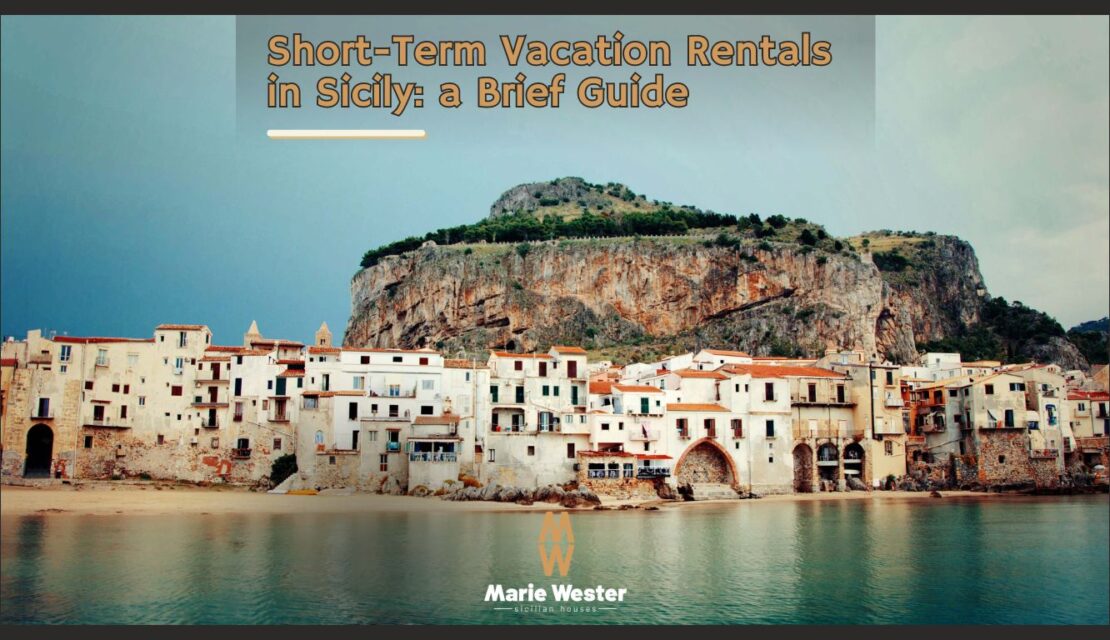
What are Short-Term Vacation Rentals?
Short-term vacation rentals, also known as “locazioni turistiche” in Italian, are the lettings of non-classified residential units located within buildings or parts of buildings, where hospitality and/or accommodation is offered without the provision of ancillary and/or tourist services. These rentals are carried out on an occasional, non-organized, and non-entrepreneurially for a period equal to or less than thirty consecutive days.
Key Features of Short-Term Vacation Rentals:
- Non-classified residential units: These are not subject to any official classification or star rating system.
- Located within buildings or parts of buildings: The units must be part of an existing structure, not standalone properties.
- Hospitality and/or accommodation: The primary purpose is to provide lodging for guests.
- No ancillary or tourist services: Unlike hotels or other hospitality establishments, short-term vacation rentals do not typically offer additional services such as meals, housekeeping, or entertainment.
- Occasional, non-organized, and non-entrepreneurial: The rentals are not intended to be a primary source of income or a business venture.
- Maximum duration of 30 consecutive days: The rental period cannot exceed 30 days.
Management of Short-Term Vacation Rentals:
- Direct management: The property owner personally handles all aspects of the rental, including advertising, bookings, guest communication, and maintenance.
- Indirect management: The property owner entrusts the management to agencies, real estate intermediaries, or professional operators who act as agents or sub-tenants.
Operational Requirements for Short-Term Vacation Rentals:
- Single cadastral code and habitability: The rental unit must have a single cadastral code (identifying the property for tax purposes) and a habitability certificate (certifying that it meets the minimum standards for human habitation).
- No ancillary or complementary services: The rental should not include additional services beyond the initial provision of linens.
Statistical Reporting Obligations:
- Submission of the hospitality offer form: Complete and submit an appropriate hospitality offer form, which the local municipality may require.
- Collection and payment of tourist tax: The tourist tax (imposta di soggiorno) is collected and paid following the procedures established by the competent local municipalities.
- Daily electronic transmission of data: Transmit guest data electronically to the Questura (police headquarters) daily through https://alloggiatiweb.poliziadistato.it/
How to Obtain the CIN for Your Sicilian Vacation Rental
Owning a property in Sicily and considering renting it out for short-term stays? To legally operate your property as a vacation rental in Sicily, you must obtain the Codice Identificativo Nazionale (CIN), a unique national identification code. Here’s a step-by-step guide on how to get your CIN:
- Go to https://bdsr.ministeroturismo.gov.it/ and Click on “Ottieni CIN”.
- As a foreign user, please select “Credenziali -Utenti Stranieri”.
- Sign in with your previous log in details (if you have already applied for the CIR before) or register as a new user.
- Fill out the form and apply to obtain the CIN.
Here, you will find a User Guide (in Italian) with a complete example of how to apply for and obtain the CIN.
PLEASE NOTE: The CIN (national identification code) has replaced the CIR (regional identification code) starting September 2024.
** How was the Process to Obtain the CIR **
-
Submit the “Comunicazione di Offerta di Ospitalità” to the Municipality:
- Visit the municipality where your property is located.
- Request the “Comunicazione di Offerta di Ospitalità per Affitti Brevi” form.
- Please carefully complete the form, including your personal information, the property’s cadastral data, and the accommodation’s capacity.
- Submit the completed form and a copy of your ID to the municipality.
-
Register on the Turist@t Portal:
- Access the website of the Osservatorio Turistico della Regione Siciliana: https://osservatorioturistico.regione.sicilia.it/
- Click the “Richiedi un Account” section and complete the registration form.
- You will receive an email with your login credentials.
-
Apply for the CIR Online:
- Log in to the Turist@t portal using your credentials.
- In the dedicated section, fill out the CIR application form.
- Attach the following documents to your application:
- Copy of your ID
- Copy of the “Comunicazione di Offerta di Ospitalità” submitted to the municipality
- Photographic documentation of the property (photos of each room, exteriors, and furnishings)
- Apply electronically.
-
Receive the CIR:
- You will receive the CIR via email if your application is complete and correctly submitted.
- The CIR is a unique alphanumeric code you must display prominently within the property and provide to your guests.
-
Additional Tips:
- Before submitting the “Comunicazione di Offerta di Ospitalità” to the municipality, verify that your property meets the minimum requirements for short-term rentals established by Regional Regulation 10/2023.
- Keep copies of all documentation produced and submitted for the CIR application.
- For more information and assistance, consult the Regione Siciliana website dedicated to the CIR: https://osservatorioturistico.regione.sicilia.it/ or contact the relevant offices of your local municipality.
-
Remember:
- Obtaining the CIR is mandatory to operate a vacation rental in Sicily.
- Operating without a CIR is subject to administrative penalties.
Additional Considerations:
- Regional and local regulations: Adhere to all applicable regional and local regulations governing short-term vacation rentals. These regulations may cover licensing requirements, minimum standards for properties, and advertising restrictions.
- Insurance: Consider obtaining appropriate insurance coverage to protect yourself from potential liabilities arising from the rental activity.
- Professional assistance: If you are unfamiliar with the regulations or need help managing your short-term vacation rental, consider seeking guidance from an experienced real estate agent or a legal advisor specializing in tourism law.
Following these steps and adhering to the regulations ensures that your Sicilian vacation rental property is fully compliant and ready to welcome guests.






Are there any indirect management agencies based in Siracusa? How does one find a reliable agent?
Even before we buy an apartment, we need to know whether the apartment, as a summer rental, would do reasonably well on the market, given its location, view, etc. Do agents provide guidance at that early stage?
What percent of the rental income (before or after taxes) is it reasonable for the management agency to receive?
I am traveling this weekend to Sicily so a quick answer would be greatly appreciated.
AT